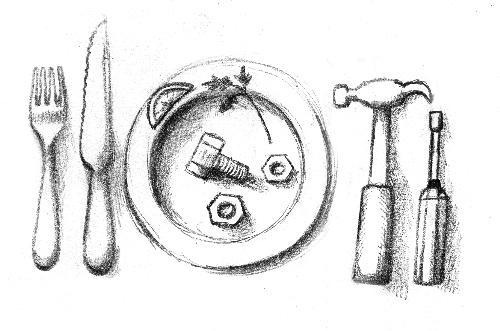
News
Summers Will Not Finish Semester of Teaching as Harvard Investigates Epstein Ties

News
Harvard College Students Report Favoring Divestment from Israel in HUA Survey

News
‘He Should Resign’: Harvard Undergrads Take Hard Line Against Summers Over Epstein Scandal

News
Harvard To Launch New Investigation Into Epstein’s Ties to Summers, Other University Affiliates

News
Harvard Students To Vote on Divestment From Israel in Inaugural HUA Election Survey
HUDS Renovations Ahead of Schedule
Letter to the Editors

To the editors:
No one is more eager than we are at Harvard University Dining Services (HUDS) to perform renovations of the dining facilities at Dunster, Mather and Quincy Houses (Editorial, “Molière’s Dining Halls,” Jan. 13). When we began the renovation process, we set a goal of completing these ambitious and comprehensive guttings and rebuildings of our outdated serveries by Fiscal Year 2009 (summer of 2008). In short, we planned to do 12 dining halls in ten years (Annenberg had already undergone recent construction). We are on schedule for completing this work as planned.
In fact, last summer’s renovation of three facilities in the Quad was more ambitious than originally planned. In our initial plan, Currier House would not have been done at the same time as the other houses. However, it proved to be most fiscally responsible and least disruptive to do Currier with its Cabot and Pforzheimer neighbors. Had we not accelerated the original plan, Currier would not have been renovated until this coming summer; therefore, the statement that Dunster, Mather and Quincy were “postponed” is not accurate. Tackling any of those renovations this summer would have been an additional acceleration of our plan.
From our experience, renovations cost approximately $3 million per House and are funded in small part by the board plan (which has always included a small allotment for capital expenditures such as renovations or new equipment), but largely by loans which HUDS assumes. Decisions are made collaboratively with the University to balance academic and physical plant priorities, and to coordinate our projects with the overall goals of the University. Further, we abide by the University’s standards for what constitutes an acceptable debt load. All these factors are weighted against costs of borrowing and costs of construction, which have respectively varied greatly from project to project during this time of rapid economic change. Analysis of our current situation told us that advancing the renovation schedule would have been an imprudent burden.
Cost-cutting measures such as eliminating festive meals or other such “jaded frippery” would in fact make an imperceptible impact on our budget, but would drastically affect the satisfaction of our students. We undertake regular surveys in addition to our daily contact with you in the dining halls and know that these special efforts we take to introduce variety, depart from the humdrum, reduce the boredom of repetition and make you feel as at home as possible matter greatly. Just as it would be fiscally irresponsible to assume an insurmountable debt level, it would be a miserly robbery of the residential community to deliver a meal plan with a “peanut butter and jelly” mentality.
I will fiercely hold Harvard University’s residential dining program up to any in the country, for service, value and taste. The University has asked us to build small havens of the community for you in each House. The men and women of HUDS take great pride in doing just that, and I take great pride in their efforts and achievements.
It is “good food, not fine words that keeps me alive.” While I understand the frustration of those individuals living in as yet unrenovated dining halls, I feel confident that Molière would be well sustained. The chefs and staffs at Quincy, Dunster and Mather are working hard to make up for the less elegant environs, and I cheer their efforts.
Ted A. Mayer
Jan. 13, 2003
The writer is Executive Director of the Harvard University Dining Services.
Want to keep up with breaking news? Subscribe to our email newsletter.
